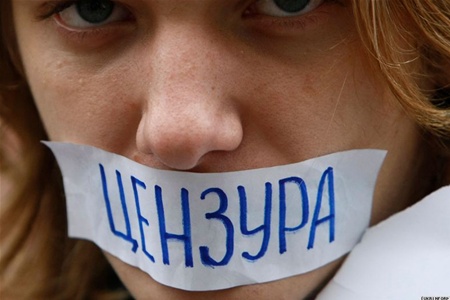Great Ukrainian Firewall or hello Internet censorship?
The Verkhovna Rada of Ukraine was going to isolate users from content immoral from their point of view. This action should take place, according to the plan of the husbands, by forcing providers to block unwanted resources at their own production facilities.

Today, deputies voted in the amount of 276, with 226 required, in the first reading they passed the bill under number 7132.
Similar incentives by the "National Commission for Morality" were already undertaken earlier in 2009 in the form of the notorious "Law 404" (bill number 3271) which to everyone’s surprise did not receive support at the time. Given the "national characteristics" of lawmaking, the adoption of amendments from the previous bill will not surprise.
Considerable concern and a lot of speculation in the provider environment are caused by the alleged technical measures of “reliable blocking” of inappropriate content.
Thoughts about what kind of content the average Ukrainian user of the network will be able to consume, if the authorities get a tool in their hands to block “unwanted” content nationwide, look even sadder.
We are looking forward to the ban at the state level of VPN tunnels or, say, Opera Turbo.
Also, even a cursory familiarization with the text of Bill No. 7132 can clearly cause a hint that providers should monitor all the user's movements:
“I’ll need to click on information, you can fix it for help:
the type of informational servant, the person who is the corridor of the servant and the general vidomosti, that you can be taken away from someone else who wants to help someone else about posting the servant; a month of installation of telecomunication possession, an hour of communication, function and information resources and a chance for access to them of telecommunication systems. ”
that in a free translation sounds like:
“to immediately provide information with which you can establish: the
type of information service, the identity of the user of services and other information that can be obtained through an agreement or service agreement; "the place of installation of telecommunication equipment, the time and place of creation, functioning of information resources and data on access to them by users of telecommunication systems."
Sources:
One
Two
Bill Himself

Today, deputies voted in the amount of 276, with 226 required, in the first reading they passed the bill under number 7132.
Similar incentives by the "National Commission for Morality" were already undertaken earlier in 2009 in the form of the notorious "Law 404" (bill number 3271) which to everyone’s surprise did not receive support at the time. Given the "national characteristics" of lawmaking, the adoption of amendments from the previous bill will not surprise.
Considerable concern and a lot of speculation in the provider environment are caused by the alleged technical measures of “reliable blocking” of inappropriate content.
Thoughts about what kind of content the average Ukrainian user of the network will be able to consume, if the authorities get a tool in their hands to block “unwanted” content nationwide, look even sadder.
We are looking forward to the ban at the state level of VPN tunnels or, say, Opera Turbo.
Also, even a cursory familiarization with the text of Bill No. 7132 can clearly cause a hint that providers should monitor all the user's movements:
“I’ll need to click on information, you can fix it for help:
the type of informational servant, the person who is the corridor of the servant and the general vidomosti, that you can be taken away from someone else who wants to help someone else about posting the servant; a month of installation of telecomunication possession, an hour of communication, function and information resources and a chance for access to them of telecommunication systems. ”
that in a free translation sounds like:
“to immediately provide information with which you can establish: the
type of information service, the identity of the user of services and other information that can be obtained through an agreement or service agreement; "the place of installation of telecommunication equipment, the time and place of creation, functioning of information resources and data on access to them by users of telecommunication systems."
Sources:
One
Two
Bill Himself
